10 Genius Ways To Reduce Energy Consumption At Home
As an Amazon Associate, Ecotero earns from qualifying purchases.
Finding different ways to reduce energy consumption at home has great benefits for the environment and your budget.
As you already know, most of us rely on pricey energy generated by burning fossil fuels and other non-renewable resources.
The energy industry is also one of the major causes of carbon emissions.
So if you can implement small changes to reduce our energy consumption, you can play a vital role in helping save Earth’s natural resources, minimize carbon emissions, and cut back on your monthly electric bill.
As a conscious consumer yourself, you’re probably already aware of some of the energy-saving tips we will share below.
Nevertheless, we are confident that you will learn a few more tricks to reduce your energy consumption at home effectively.
Let’s get started.
1. Switch to energy-efficient appliances
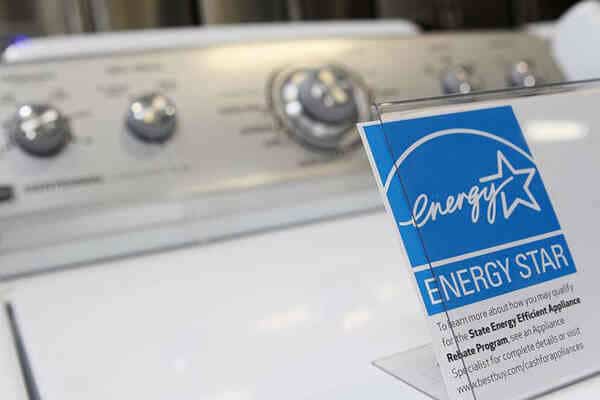
Old appliance models are not just energy-hungry, but some even cause harm to the environment.
For example, old refrigerators use a lot of electricity and are powered by CFC, which are known to harm the ozone layer.
On the flip side, newer appliance models of aircons and refrigerators are designed to be more energy-efficient and are gentler on the planet.
But wait!
We are not telling you to run to IKEA (or the appliance center near you) right now and get one of those energy-efficient appliances.
The idea is when it’s time to replace old appliances, find a model that will have less burden on your electricity usage.
And when shopping for energy-efficient appliances, one thing to look for is to check if they have an ENERGY STAR rating or certification.
ENERGY STAR is a program run by the U.S. Environmental Protection Agency and the U.S. Department of Energy that provides information on the energy consumption of appliances and promotes energy efficiency among consumers.
2. Use cold water during the laundry
According to ENERGY STAR, up to 90% of the electricity consumed when using hot water mode is used to simply heat the water!
So why not wash clothes using cold water?
This practice is one of the best ways to reduce electricity bill at home during your laundry day.
But we know what you’re thinking.
You’re worried that cold water might not kill germs in your laundry.
This is a valid reason, especially if you have a baby and you’re washing their garments and soiled cloth diapers.
No parent would jeopardize their family’s health, even if it means reducing your monthly electric bill.
But guess what?
A study by an American microbiologist and professor revealed that most germs in laundry are effectively removed even with cold water.
So unless the laundry was worn by someone who works in a high-risk field where contacting sick patients or animals is unavoidable, using cold water to wash their laundry should be fine.
Just make sure to use effective antibacterial laundry detergents.
And while we are on this topic, another great way to reduce energy consumption at home when doing laundry is to minimize your dryer usage.
Whenever you can, avoid machine drying your laundry, especially if you are not in a hurry and when the weather is sunny.
Instead, consider line-drying (or air drying) your laundry with a clothesline or by using hangers.
Besides reducing energy consumption, line drying will protect your clothes from wear and tear.
So, you get less expenses from electric bills and buying new clothes.
You can learn more money-saving laundry tips here.
3. Get an air fryer and reduce energy consumption while cooking
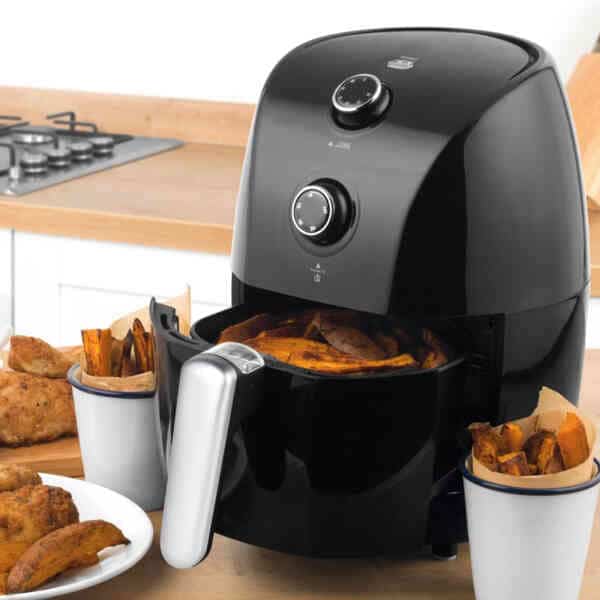
Air fryers are more energy-efficient compared to most convection ovens, but not in all scenarios.
Moreover, an air fryer can be used not just for “frying” but even to bake, grill, braise, and roast!
And there’s more!
We’ve done research and conclude that using an air fryer will allow you to reduce your energy consumption and cook healthier food.
You also don’t need to use a lot of cooking oil when using an air fryer, so less expenses on cooking oils as well.
Click here to discover 10 of the best air fryers to buy today.
You can also consider switching to an electric stove as they are more energy efficient than gas stoves.
4. Utilize renewable energy sources
Generating your own energy from a renewable source is one of the best ways to reduce energy consumption in your home.
And don’t worry because you don’t need to be an engineer or have a Ph.D. to be able to do so.
You can install solar panels in your home to generate free, clean energy from the sun, for starters.
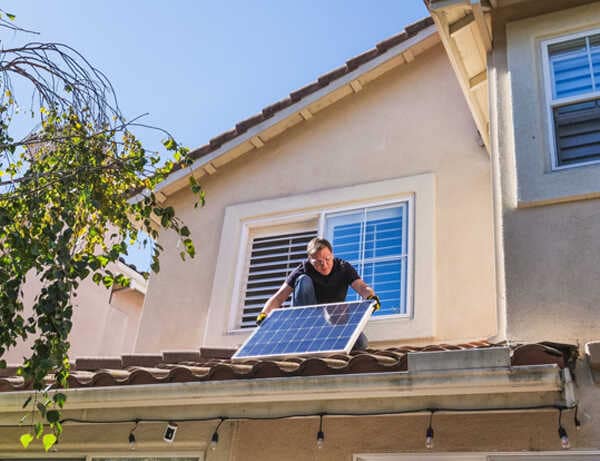
While solar panels can be expensive, they are a long-term investment.
Some of the best solar panels can supply you with free solar energy for up to 25 years!
Alternatively, you can also install solar-powered devices in your home.
Thanks to the advancement of technology, you can find a solar-powered version of almost any electronic appliance you use in your home today.
And if you live in a less sunny area, you can consider getting a wind turbine.
5. Stop ironing clothes (unless you have to)
We all know that ironing consumes a lot of energy.
But did you know that frequent ironing also deteriorates the fabric of your clothes?
So unless you really have to, don’t iron your clothes.
Only iron those that you need to wear for work or school uniforms.
For the other clothing, you can hand them immediately after the washing so that the water in the fabric will work with gravity and pull most wrinkles out.
You can also stack clothes with each other and place the important ones at the bottom so the weight will press them straight.
6. Switch to energy-efficient light bulbs
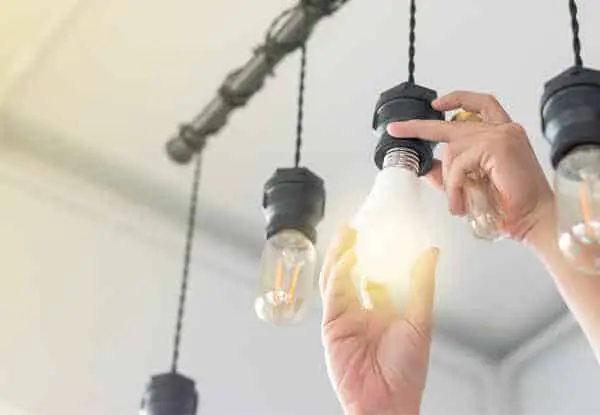
According to Energy Saving Trust, lighting makes up 15% of the average U.K. household electricity consumption.
And according to the data from Energy.gov, lighting accounts for 15% of global electricity consumption and 5% of worldwide greenhouse gas emissions.
Hence, switching to a more energy-efficient lighting will lower the energy consumption in your home and reduce carbon dioxide emissions.
Some of the most energy-efficient lighting options are:
Compact fluorescent lamps (CFLs)
The first energy-efficient bulbs on the market which only use around 70-80% less electricity than the equivalent traditional bulbs.
Light-emitting diodes (LEDs)
Residential LEDs (especially those rated by ENERGY STAR) use more than 75% less energy and last 25 times longer than incandescent lighting; they also come in almost all types and fit pretty much any light fitting in the home.
Energy Saving Trust added that if you replace all the bulbs in your home with LED lights, you could reduce your carbon dioxide emissions by up to 40kg a year (equivalent to the carbon dioxide emitted by driving your car around 140 miles).
Strip lights or linear fluorescent lamps (LFLs)
One of the most energy-efficient lighting options in offices or industrial settings.
With that being said, LED is the most energy-efficient lighting option currently available in the market during publication of this guide.
7. Use ceiling or stand fans more
Instead of relying too much on air conditioning, ceiling fans and stand fans can also cool down your home temperature.
But the great thing about using ceiling fans and stand fans is that they are more energy-efficient than an air conditioning unit.
According to 101 Appliance, average electric fans cost an average of 80% less compared to aircon units, and they only use about 5.4% of the energy most air conditioners use per hour.
Of course, we understand that switching to using an electric fan can be difficult, especially if you and your family have been using an aircon unit ever since.
But what you can do is make gradual changes in the appliance you use.
For example, you can start by using electric fans during the day and aircon at night.
You can also schedule certain days of the week when you only use the electric fan.
Another thing you can do is to use a timer and sleep mode on the A.C. overnight.
It’s up to you.
8. Practice smart water usage
We bet you already know that saving water is important.
But did you know that it takes a lot of energy to produce tap water and bring them to our homes?
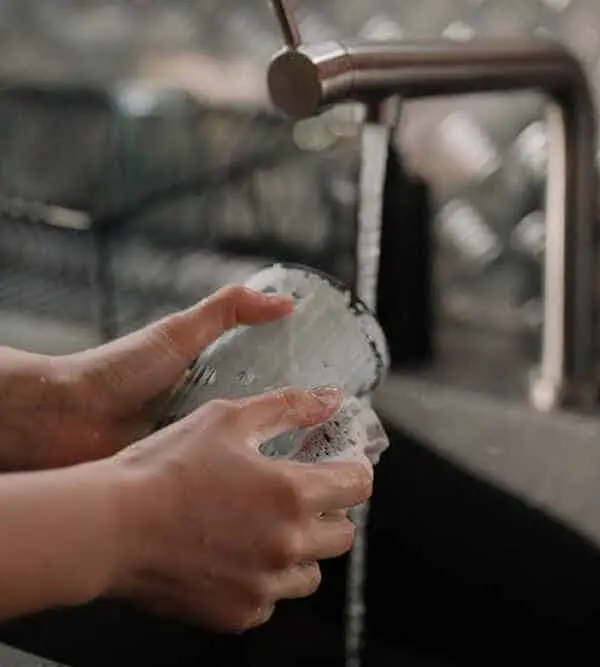
As a reminder, here are some simple tips on how you can use water wisely to reduce energy consumption at home:
- Take shorter showers
- Don’t leave the water faucet running when not used
- Only use the dishwasher or washing machine with a full load
- Turn off the water when brushing teeth
- Don’t let the water run while washing dishes
- Water plants using leftover bathwater or laundry water
- Fix leaky faucets
Taking extra steps to conserve water and using it wisely is a great way to reduce energy consumption at home.
The more water you use, the more energy you consume.
9. Make use and be mindful of natural temperature and lighting
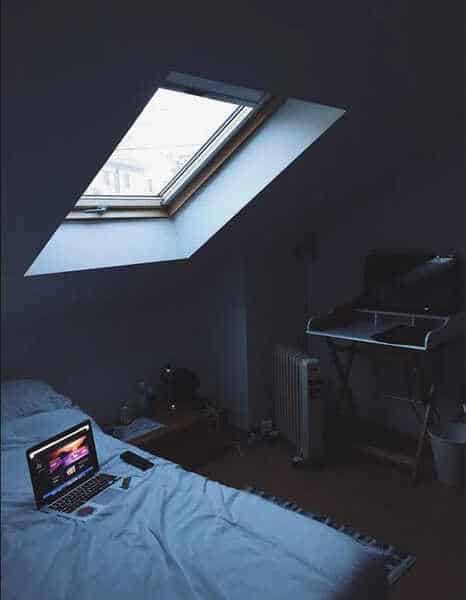
Is it daytime and sunny outside? Open the window and let the natural light in instead of turning on the electric lights.
Too hot at night? Again, open your window and let the cool breeze in. (just don’t forget to close them before going to sleep)
Is it barbeque weather? Cook outside and don’t use cooking appliances inside to reduce the heat in your home and save on your home cooling costs.
Is winter coming? Make sure windows are sealed properly so cold winter air can’t go inside, and add extra work to your heater.
10. Turn off and Unplug unused electronics
It is common sense, and most of us are diligent enough to turn off our appliances when we are not using them.
But still, we included this on the list as a reminder.
It’s the simplest thing sometimes that gets forgotten.
And believe it or not, many people worldwide are still leaving various appliances ON (like T.V., fan, light, chargers, aircon, computer, etc.) even when they are not using them.
And building on this topic, make sure to unplug the appliances after turning them off.
Because even if an electronic device is OFF, it will still consume a tiny amount of energy if they are left plugged into the power source.
If you live with children and teenagers, make sure to remind them of the importance of turning off and unplugging electronic devices when not used.
Final Thoughts
There are great benefits to finding ways to reduce your energy consumption.
Not only is it eco-friendly, but it is also budget-friendly.
We hope that you now have more simple ideas and creative ways save electricity and reduce energy consumption at home with this list.
And we would like to hear from you too!
If you know other practical and brilliant ways to be more energy-efficient at home, please share in the comments section below.

